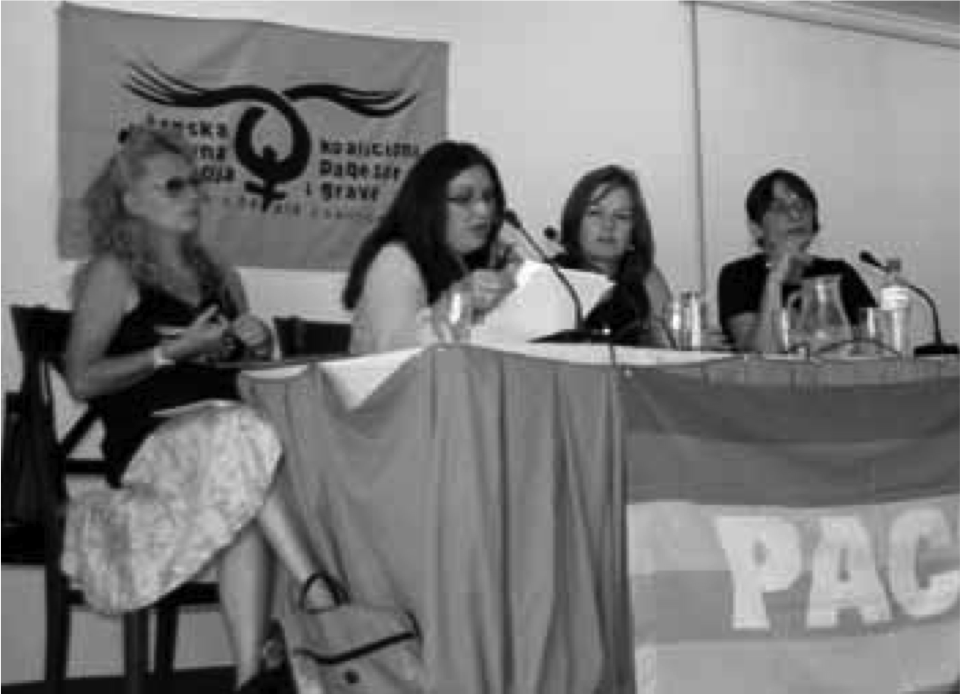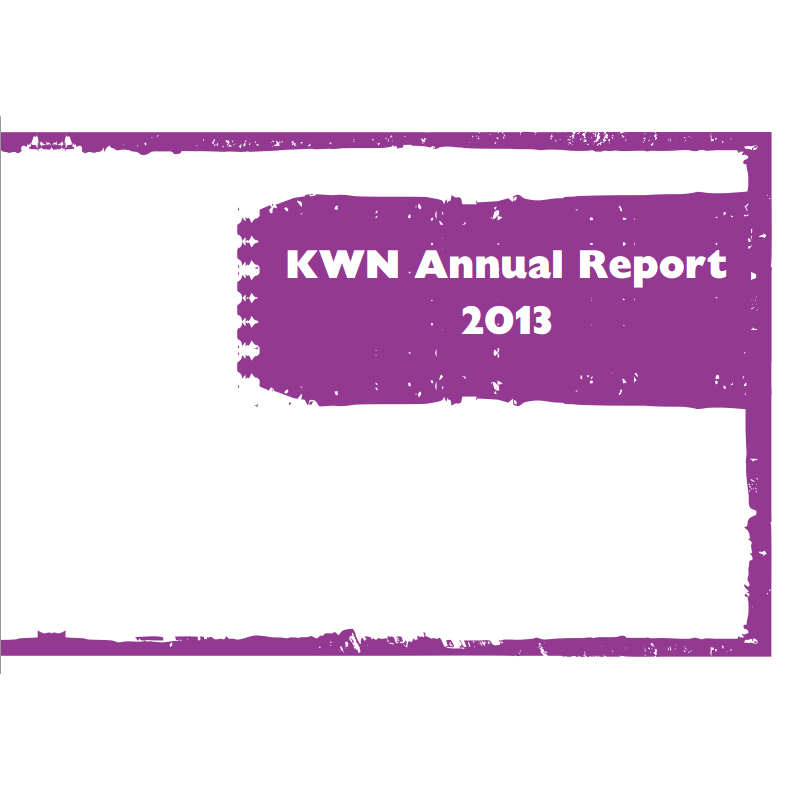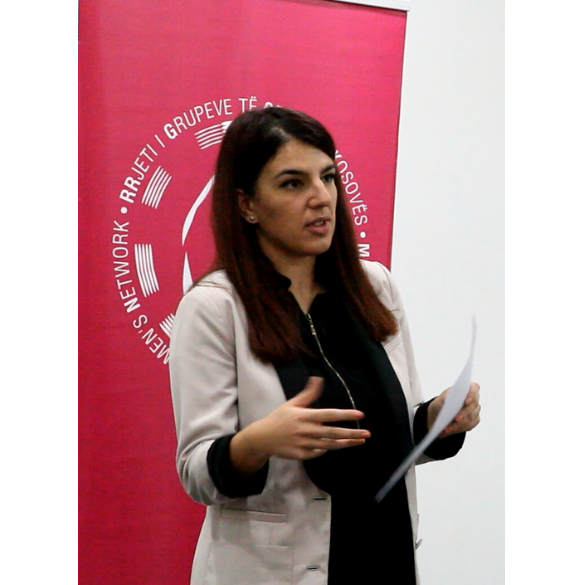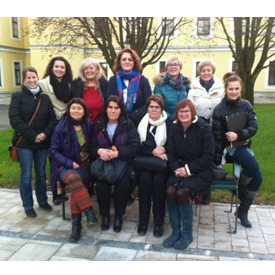The Kosova Women’s Network cooperated with Women in Black Network Serbia to form the Women’s Peace Coalition on 7 May 2006. The coalition, comprised of activists from Kosova and Serbia, seeks to make women’s perspectives more visible in the political affairs of Serbia and Kosova. Striving toward just and sustainable peace, the Women’s Peace Coalition works for the inclusion of women in peace-building processes as equal partners. Founded on women’s solidarity, it is an independent citizens’ initiative that crosses national, ethnic, and religious borders, barriers, and divisions. The coalition has received ongoing support from the United Nations Development Fund for Women (UNIFEM).
In its first major action, the coalition issued a statement to inform Kosova’s final status negotiations on preservation and protection of cultural heritage sites in Serbia and Kosova. In a letter to the negotiation teams, the coalition stressed the need to identify and preserve cultural sites like churches, mosques, and cathedrals from physical degradation and political exploitation. “Cultural sites are linked to the cultural heritage, history and communities of all ethnic groups, and thus all ethnic groups have the right to share, preserve and protect these heritage sites,” the statement said.
Throughout 2006, the Women’s Peace Coalition wrote letters to and met with key decision-makers, namely UN Secretary General Envoy in Charge of the Negotiations on the Future Status of Kosova President Martti Ahtisaari. Thus, the coalition contributed to the implementation of UNSCR 1325 by making women’s voices heard in peace processes.
September marked a historical moment for sustainable peace in Kosova, Serbia, and the region.
The Women’s Peace Coalition held a three day conference on “Women, Peace and Security” in Struga, Macedonia to bring visibility to the work of women peace activists in creating stable and just peace in the region. The conference occurred parallel to the official negotiations on the final status of Kosova. In a joint statement, sixty Kosovar and Serbian women’s peace activists concluded that peace in the region is not possible without the active participation of women. Further, they supported the independence and territorial integrity of Kosova as a civil state with a functional legal system. They also demanded that the needs of all citizens, women and men, form the basis for peace and security in Kosova; that the relevant institutions adopt a concept of human security, especially from a gender perspective, according to UNSCR 1325; and that women be included in all decision-making processes at all levels.
Opposing official politics that bring divisions and conflict, the Women’s Peace Coalition made plans to continue building trust, women’s solidarity, and mutual support toward the creation of lasting and just peace in the region.
During the conference, the coalition created a one-year action plan. The plan called for increased dialogue between women of all ethnic groups from Serbia and Kosova through encounters and discussions about security for vulnerable groups, Kosova’s final political status, and women’s involvement in decision-making. Women-led organizations with similar missions in Serbia and Kosova made plans to hold more networking and joint activities. Organizations also planned to further support women’s human rights, especially reproductive rights.
The numerous agreements reached among the Serb and Kosovar participants during the conference demonstrated how negotiation processes surrounding Kosova’s final status missed opportunities for peace by failing to involve women.
In a historic moment, Women in Black Network Serbia representatives apologized for the crimes and terror committed in their name by the Serbian regime against Kosovar Albanians. The apology was broadcast on Radio Television Kosova, marking the first public apology made for crimes committed against Albanians during the war. Activists noted the importance of official apologies in the healing process as a necessary prerequisite for sustainable peace.






